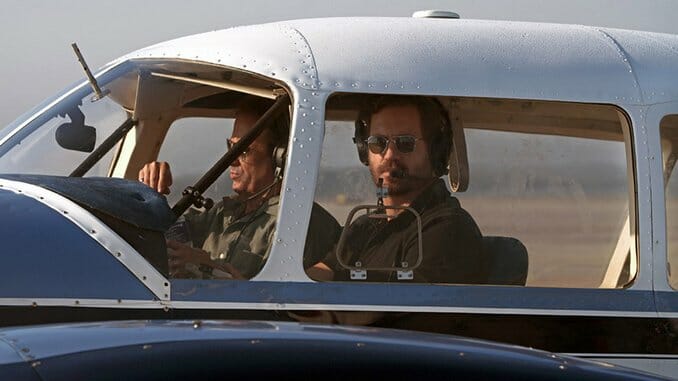Olivier Assayas’s Wasp Network Administers an Antidote to Blockbuster Sexlessness
Images via Netflix
Olivier Assayas’s Wasp Network, released on Netflix only last week, seems to have already secured a designation as “minor.” A Netflix sans-theatrical release in the midst of a global pandemic does indeed feel like a death knell that will doom it to footnote-dom, which might have eventually been the case in a fully functioning world; perhaps circumstances only initiated the pulling of the trapdoor lever, expediting its fall to some underworld of B-side auteur films, where it was bound to land anyway. That fate, however, is not a just one. This may not be Assayas operating at the peak of his powers, but there’s no use in denying the thrilling efficiency that propels the overstuffed yet nimble two hours of Wasp Network.
In early 1990s Havana, pilot René González (Édgar Ramírez) defects from Cuba to the United States, leaving behind his wife, Olga (Penélope Cruz), and his young daughter. Once stateside, he begins running rescue missions for sea-stranded defectors with a group of anti-Castro Cuban exiles out of Miami. Only René is not as he appears—he’s a spy sent by the Cuban government to infiltrate groups hostile to national interests, part of a budding network of operatives, organized by Gerardo Hernández (Gael García Bernal), who hope to thwart any would-be aggression on Cuban soil.
-

-

-

-

-

-

-

-

-

-

-

-

-

-

-

-

-

-

-

-

-

-

-

-

-

-

-

-

-

-

-

-

-

-

-

-

-

-

-

-








































